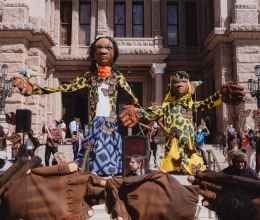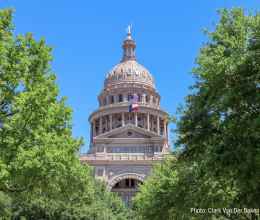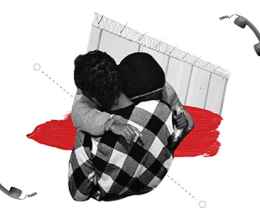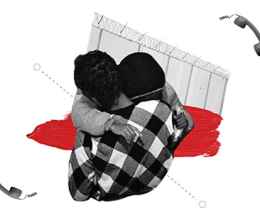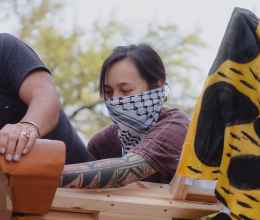
Kill Joy is a Filipino American street artist from West Texas who now lives in Houston. Her work blends storytelling, world mythology, and environmental justice to uplift frontline movements and challenge state violence. As the 2024–2025 artist-in-residence with the ACLU of Texas, Kill Joy collaborated with Kitchen Table Puppets & Press to activate the collective strength of border and immigrant communities through large-scale, community-driven art.
During her residency, Kill Joy led a giant puppet rally at the Texas Capitol, a moving performance at the “Hugs Not Walls” event in El Paso, and a statewide tour — “Recipes of Resistance / Recetas de Resistencia” — that brought together more than 300 volunteers and reached thousands across Texas. Each stop featured community performances, night markets, and joyful resistance in the face of escalating anti-immigrant policies.
We spoke with Kill Joy about her artistic journey, what collaboration means in times of crisis, and what it looks like to build care through creative resistance.
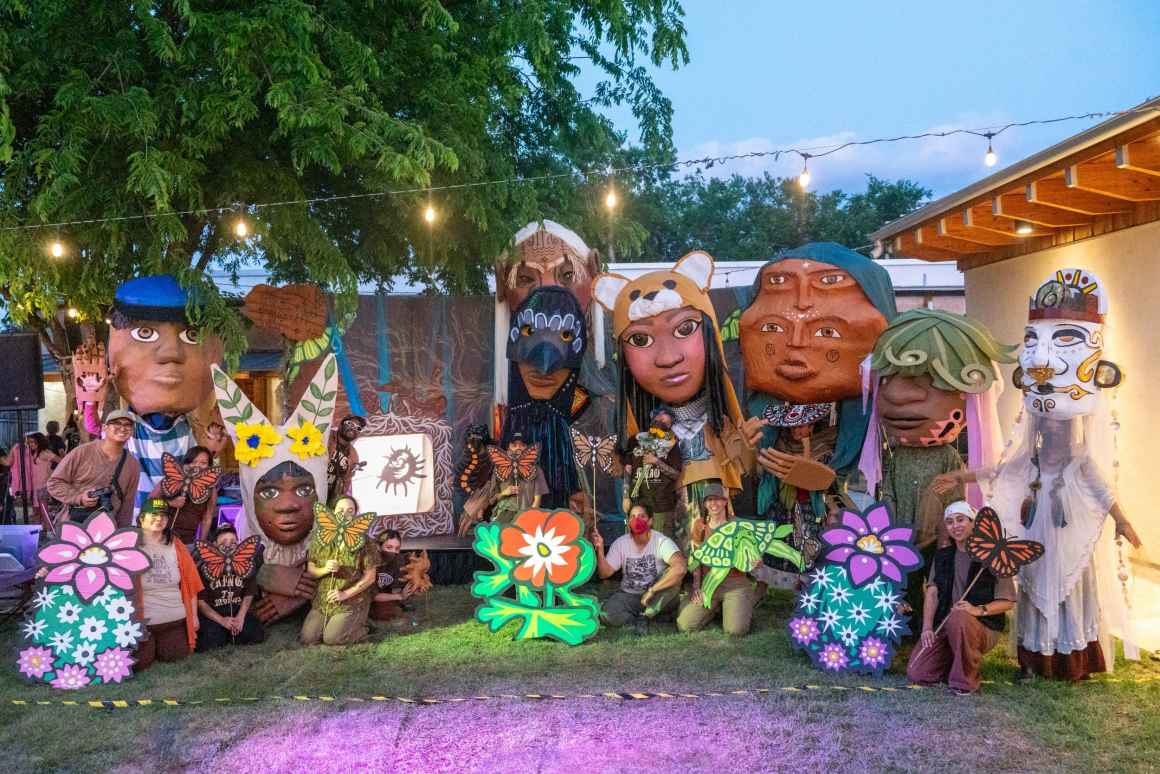
What first sparked your interest in becoming an artist, and how did that evolve into using your art for advocacy?
I feel really lucky that I never stopped being an artist. From birth, we’re creative and full of wonder. My first memories are of play and discovery — drawing, painting, collaging, dioramas, and puppets. As kids, we already know what we’re drawn to. It’s the system, fueled by capitalism, that makes us forget and grooms us for assimilation.
That violent grooming is what pushed my work into alignment with movements resisting state oppression. For me, making art is one of the few spaces where I feel truly free. I want to share that feeling with liberation movements, because we’re all working to transform something much bigger than ourselves.
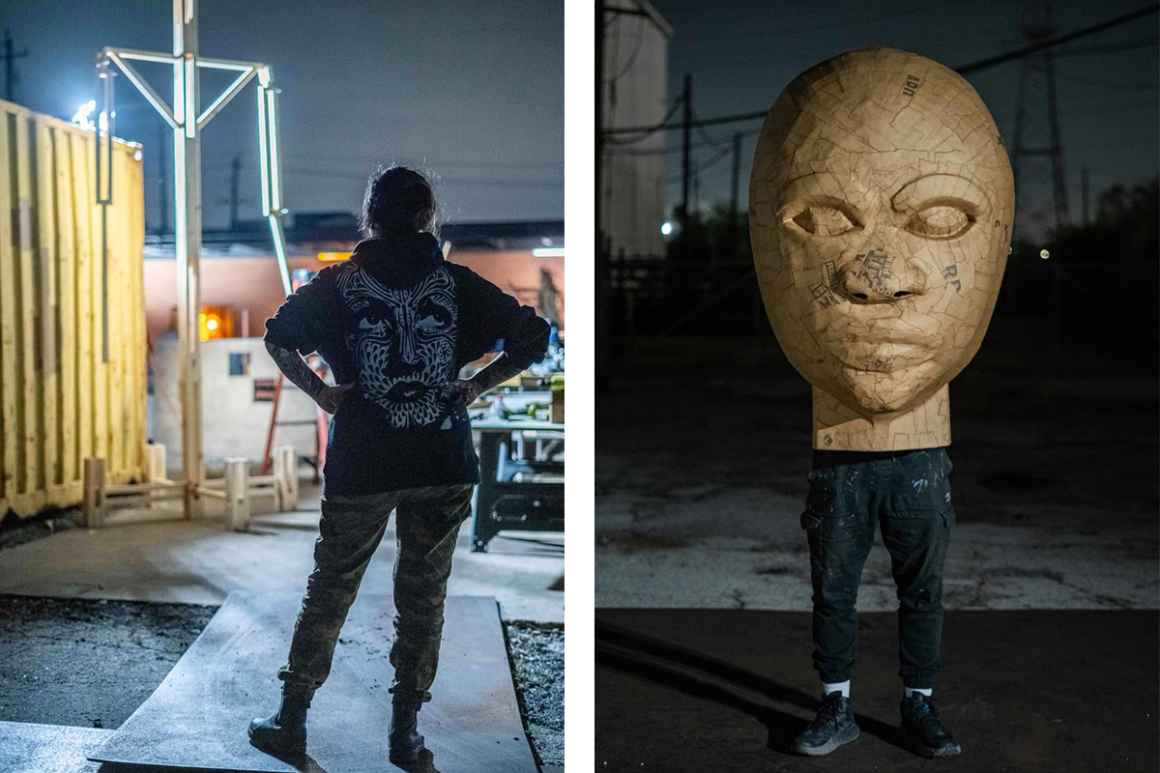
What was your favorite part of the creative process behind “Recipes of Resistance”?
My favorite part was making the puppets. My partner Rebo and I worked together to build the Mountain Lion puppet, which was such a joy. There’s so much planning that happens in a show like this — writing, collaborating, endless logistics. That part can stretch on longer than the actual art-making.
But when I’m in the studio, fully focused on a creative task, I can let everything else go. I’m not thinking about the news or even about the tour. I lose track of time, and “Kill Joy” disappears. There’s no burnout or dread in that moment, just presence.
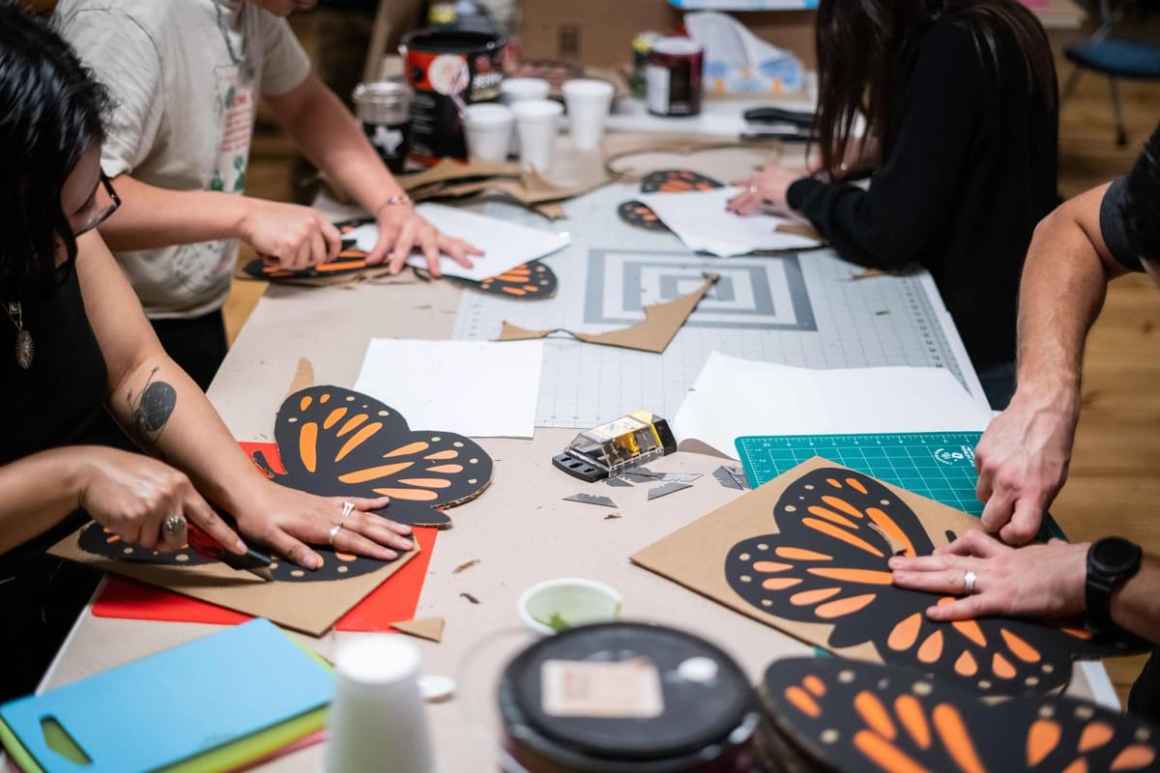
You worked with more than 100 volunteers and artists across Texas. What did collaboration mean to you throughout the project?
In this medium I call “Puppetland,” there’s so much room for dreaming and scheming. Our collective is named Kitchen Table because, especially in times of resistance, there should be a seat for everyone. That’s what this project was about.
It’s incredibly humbling to be part of something that so many people believe in. The range of voices and talents at the table allowed the work to grow in ways that would have been impossible alone.
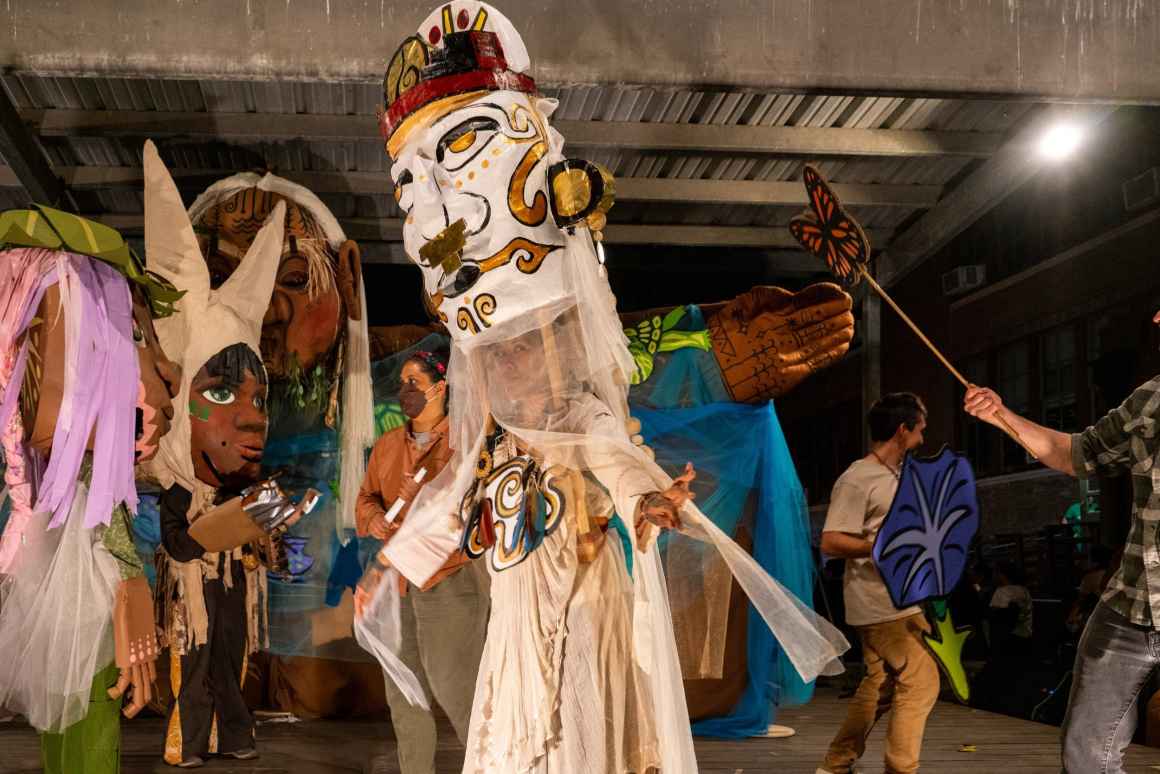
What do you hope people take away when they witness your work?
It’s been some time since we wrapped “Recipes of Resistance,” and we’re still feeling the impact. After almost a year of planning, seeing the tour come to life in such a loving way was an honor.
We wanted each stop to hold the community in care. I made a point to collaborate with local folks at every destination so that our mycelium network could grow stronger. I hope people felt the intention and love in every part of the project — from working with ACLU of Texas, to writing the script with input from borderland communities, to the puppet builds, the potlucks, the rehearsals, the performances, and the closing night piñatas. Every part of this was an offering.
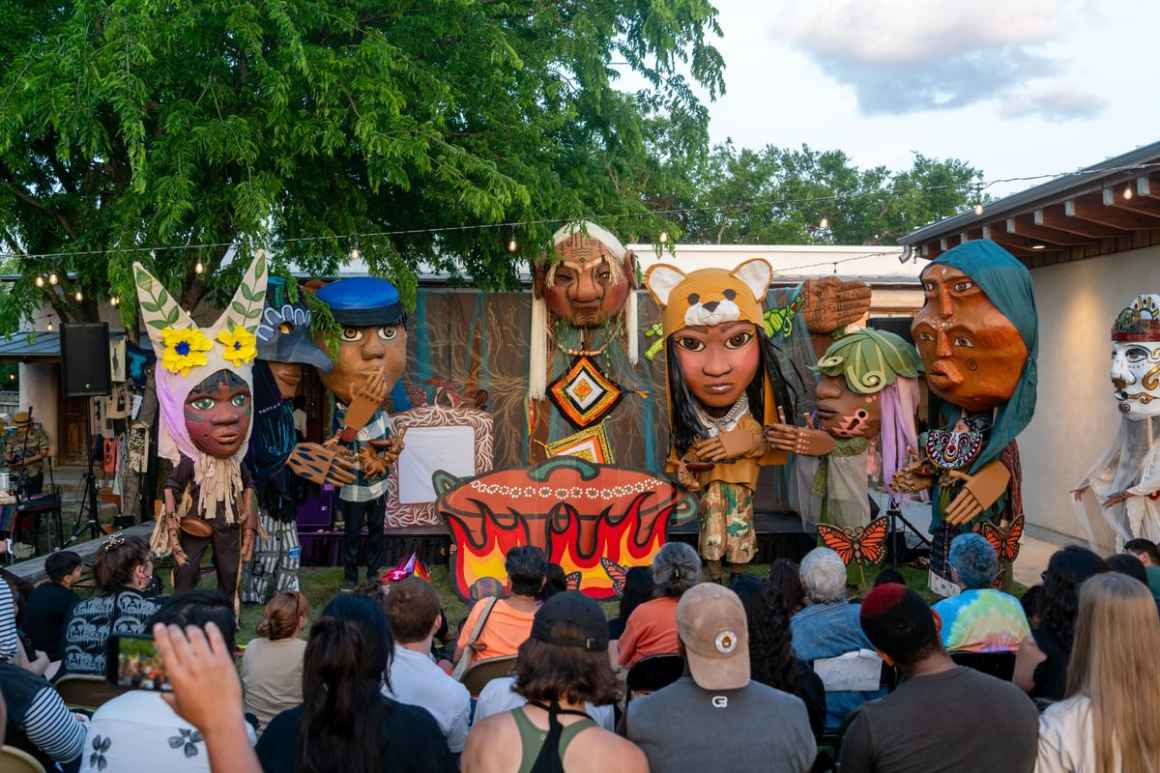
What is something you’ve learned about yourself or your art through this experience?
I’m trying to learn to pace myself. This work is deeply rewarding, but it’s also long term. To keep the mycelium network alive, it has to be sustainable.
There’s a real hunger for connection right now, especially with so much harm coming from the state. We’ve received so much beautiful feedback about what this project meant to people. It moves me to see how creativity helps us come together and process the daily violence we face — especially in the South.
I believe in this work. I believe in the power of collectivity. And I want to keep nourishing the foundation that allows it to grow.
Artist Statement
Kill Joy’s work is grounded in honoring the earth and seeking environmental and social justice through both radically imaginative worlds and supporting frontline social movements. Her work is an interpretation of world mythology and a study of nature’s cycles. She integrates storytelling and ancient symbolism with calls to spiritual and political awareness and action.
Website: https://joyland.space/
Social Media: Kill Joy and Kitchen Table Puppet & Press
Photography by Christian Toledo and Sol Diaz-Peña
